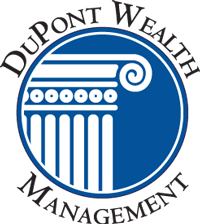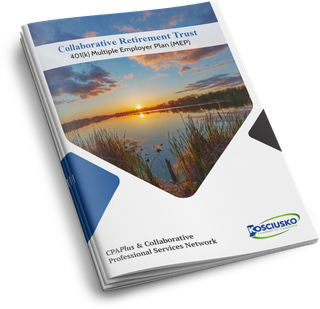What is a MEP?
What is a MEP?
An Open MEP is a fully integrated, yet fully customizable, turn-key retirement plan designed to reduce employer and personal fiduciary liability.
An Open MEP is a fully integrated, yet fully customizable, turn-key retirement plan designed to reduce employer and personal fiduciary liability.
In a traditional MEP, a program that has existed since the early 20th century, some kind of relationship or commonality generally existed between participating employers-restaurateurs, lawn service companies, or tech start-ups, for example, joined together with others in their respective fields to create a larger pool.
After some time, groups of un-linked employers-often called Professional Employer Organizations (PEOs) or simply co-employers, at the time-began to join together to offer MEPs to their companies’ employees. This practice brought in all kinds of legal problems and began to be questioned by the IRS.¹
In 2002, the IRS published Revenue Procedure 2002-21, which mandated changes to the MEP structure, no longer allowing PEOs to continue to function the way they had been working for decades, but insisting they must work as legal co-sponsors of the retirement plans. A later ruling in 2012, DOL Advisory Opinion 2012-04A, opened the door for Open MEP's to be created. These "open" MEPs introduced a fresh, new approach which allowed even more business owners the opportunity to provide 401(k) plans for their employees. Open MEPs are fee-based, qualified 401(k) retirement plans that permit unaffiliated employers to opt into a retirement plan sponsored by an outside entity that bears responsibility for administering the plan.
“An ‘open' MEP is a plan where participating unrelated employers have no commonality except for providing retirement benefits to their employees."²
''Although Open MEPs are being discussed as something new, they are clearly a continuation of the established MEP plan structure. The advantages they offer should be a consideration for any employer exploring their fiduciary and administrative options.'' Fred Reisch, Partner Drinker Biddle.³
An Open MEP is a fully integrated, yet fully customizable, turn-key retirement plan designed to reduce employer and personal fiduciary liability.
An Open MEP is a fully integrated, yet fully customizable, turn-key retirement plan designed to reduce employer and personal fiduciary liability.
In a traditional MEP, a program that has existed since the early 20th century, some kind of relationship or commonality generally existed between participating employers-restaurateurs, lawn service companies, or tech start-ups, for example, joined together with others in their respective fields to create a larger pool.
After some time, groups of un-linked employers-often called Professional Employer Organizations (PEOs) or simply co-employers, at the time-began to join together to offer MEPs to their companies’ employees. This practice brought in all kinds of legal problems and began to be questioned by the IRS.¹
In 2002, the IRS published Revenue Procedure 2002-21, which mandated changes to the MEP structure, no longer allowing PEOs to continue to function the way they had been working for decades, but insisting they must work as legal co-sponsors of the retirement plans. A later ruling in 2012, DOL Advisory Opinion 2012-04A, opened the door for Open MEP's to be created. These "open" MEPs introduced a fresh, new approach which allowed even more business owners the opportunity to provide 401(k) plans for their employees. Open MEPs are fee-based, qualified 401(k) retirement plans that permit unaffiliated employers to opt into a retirement plan sponsored by an outside entity that bears responsibility for administering the plan.
“An ‘open' MEP is a plan where participating unrelated employers have no commonality except for providing retirement benefits to their employees."²
''Although Open MEPs are being discussed as something new, they are clearly a continuation of the established MEP plan structure. The advantages they offer should be a consideration for any employer exploring their fiduciary and administrative options.'' Fred Reisch, Partner Drinker Biddle.³




